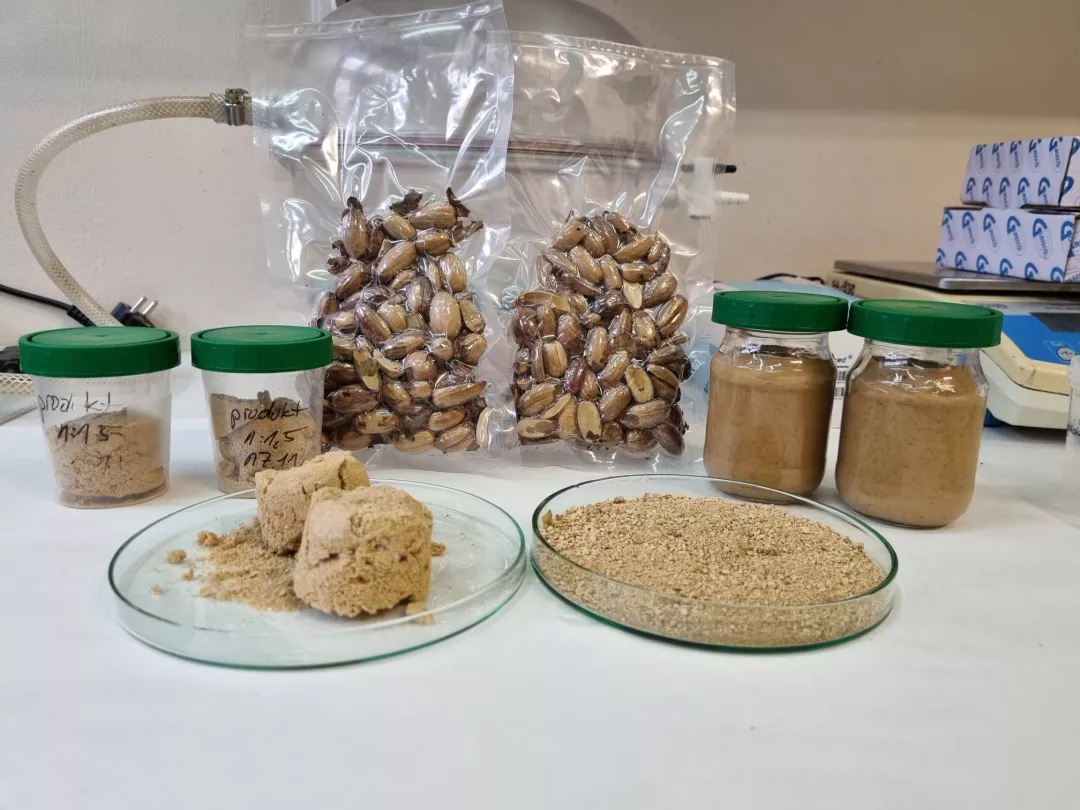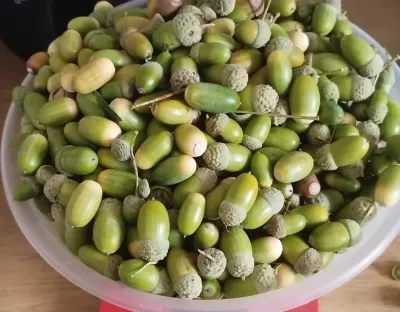Summary
The sustainable use of by-products from forestry can lead to the development of new value chains and business models which are tailored to the needs of producers and rural areas.
The Polish Acorn project has developed a technology to use acorns as a basis for meat-free alternative products.
Resources
Links
The sustainable use of by-products from forestry can lead to the development of new value chains and business models which are tailored to the needs of producers and rural areas. This provides a diversified income, adds value to products, and delivers better resource efficiency. The Polish Acorn project harvests acorns from a natural forest, Jarocin Forest District, in Poland, that were initially not harvested. During the project, which started in 2014, the partners developed and implemented a technology for using acorns as a basis for meat-free alternative products. With the use of this technology, an innovative vegan ingredient based on the bitter mass of acorns is obtained and effectively preserved.
The project was initiated by Jarosław Żytowicz, an entrepreneur who was looking for innovative possibilities for the production of ready-made vegan meals. In recent years, there has been a growing demand for vegan products, and the range of these products is expanding. Alternative raw materials are being introduced to the market, which means producers of vegan products can offer consumers a more diversified choice.
The partners from the Operational Group wanted to use acorns as a food ingredient, and developed a method based on vacuum pressure. The mass obtained from acorns is decomposed using vacuum infusion. Thanks to the starch that acorns contain, the processed acorn mass is a natural technological additive with stabilising and thickening properties when used in vegan products.
Acorns have always been an important food resource in human history, as well as one of the main food ingredient substitutes during periods of food crises. But, up until now, mainly dry forms of acorns have been used as an ingredient for consumer products, such as cereal, coffee, and flour for bread, pasta, or biscuits. The use of acorns can be implemented more broadly thanks to the thickening structure of the processed acorns, for instance as a basis for soup. In addition, the high amount of starch enriches the nutritional value of food products, making it comparable to that of cereals. Additionally, the project partners established a method for preserving the acorn mass in laboratory conditions and for evaluating its quality over six months of storage.
Acorns remain an expensive raw material because they are susceptible to insects and fungi. In the future, the Polish Acorn project partners hope to investigate whether it also would be possible to use other forest tree nuts to produce food products for creating an alternative source of income.
Paula Baumgart


